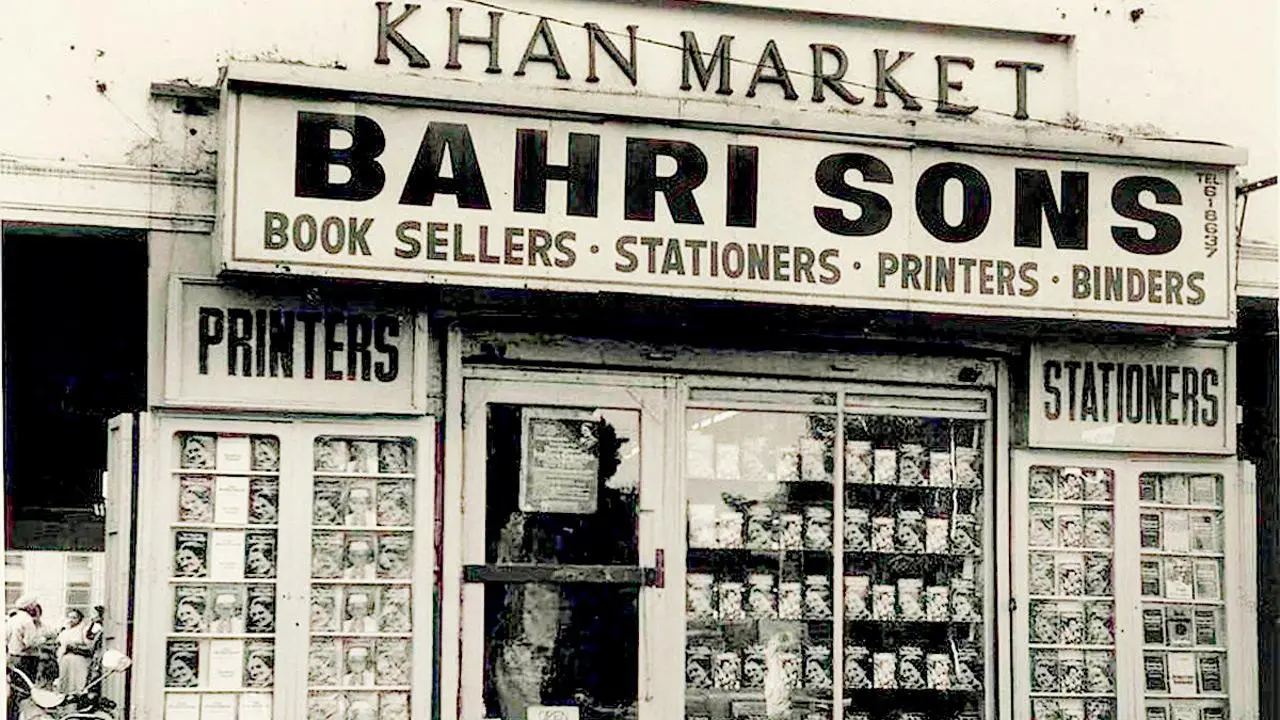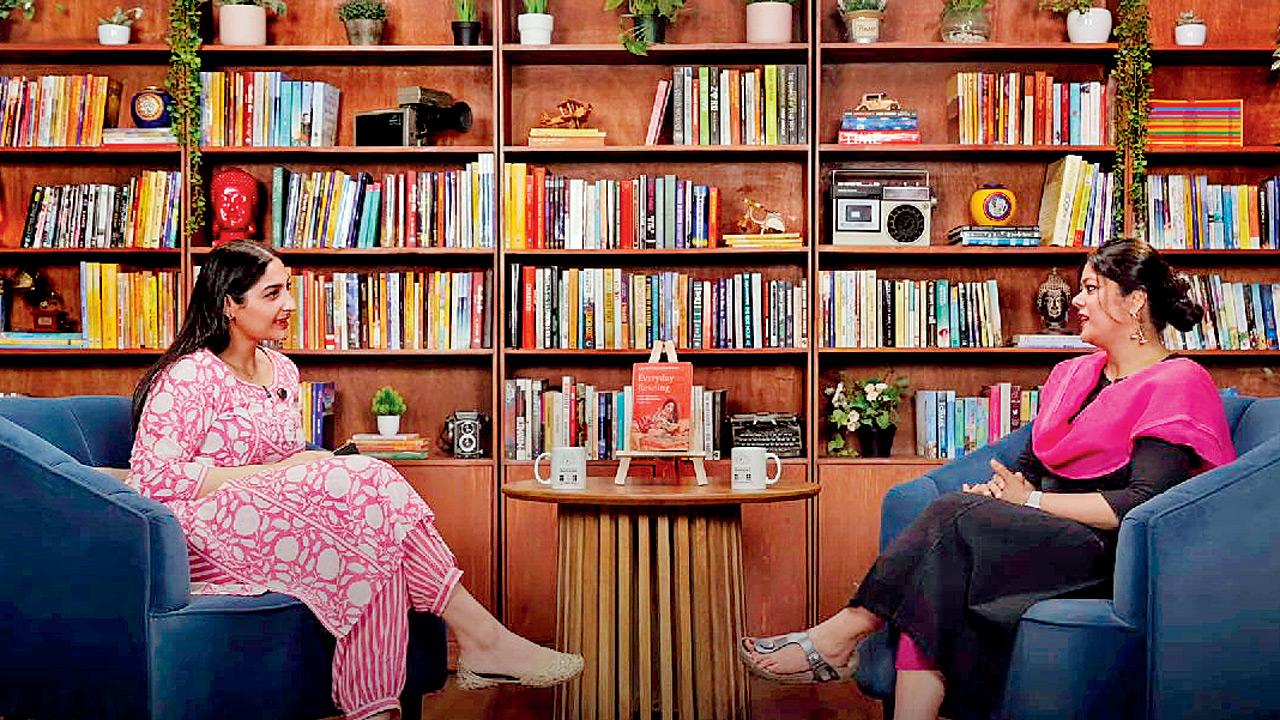A new podcast, pitched by one of India’s most respected bookstores, features desi authors, who speak about the process behind their books, and discuss tough topics through warm conversations

A dated photo of the Bahrisons bookstore. Pic Courtesy/Aashna Malhotra
In almost 72 years, a New Delhi-based family-run bookstore, Bahrisons Booksellers, situated in Khan Market, the heart of the city, has grown into one of the most loved spaces for readers. Last week, it launched a podcast, The Reading List by Bahrisons Booksellers. The podcast promises to feature conversations with Indian authors whose books have been published in 2024 and 2025. We catch up with the host Aashna Malhotra, who reveals that the purpose of starting this was, “to celebrate Indian writing and the kind of stories that may not always make headlines but quietly shape how we read.”
Malhotra has been a podcast enthusiast since her undergraduate days. She tells us, “Podcasts became my favourite way to learn and keep up with current events. Last year, my father suggested we explore how a podcast could fit into what [our bookstore] already offers readers through author engagements.” This meant bringing two of her interests together: her love of the audio format of storytelling and of learning and meeting people. “It was also an opportunity to find my place in our family’s long relationship with books,” she adds.

Aashna Malhotra with Aakriti Mandhwani. Pic Courtesy/YouTube
The first episode with Aakriti Mandhwani, author of Everyday Reading, makes for an ideal debut episode. It encapsulates Mandhwani’s research on reading habits in the 1950s and 60s India and small revolutions within the publishing industry. While the author speaks about publications like Dharmayug and writing opportunities in films that attracted Urdu and Hindi writers to Bombay (now Mumbai), she elaborates how Delhi became a dynamic centre that helped writers define themselves. Malhotra and Mandhwani further discuss the actress Meena Kumari on the book cover, women readers and writers, letters to the editors, early middlebrow magazines like Sarita, paperbacks like Hind Pocket Books, and the pleasures in print.
The conversation is delightful. The one-hour duration keeps it rich and engaging. Malhotra shares, “While I’m a podcast purist and stick to audio-only, video is growing popular.” Hence, the podcast has been recorded in a video format. An exciting feature of this is that the videos carry notes which pop-up as quick glossaries when an author unpacks an esoteric term or mentions an important contributor to the field. Since this was a new challenge for the bookstore, a major difficulty for them was in finding a space to shoot. They wanted something that reflected the same warmth and intimacy that a reader felt when they entered their bookstore or their home library. Eventually, they found a recording studio that helped them create this.
They also decided to limit the first season to Delhi-based writers and those passing through the city. Malhotra recalls looking across genres. “We’ve tried to spotlight authors whose work is deeply thoughtful but may not always get mainstream media attention. It’s a small effort to honour the depth and diversity of Indian publishing today.” Some of the upcoming guests include the historian Anirudh Kanisetti, novelist Amitabha Bagchi, former journalist Amrita Tripathi, and Malhotra’s sister and oral historian Aanchal Malhotra, among others.
In the episodes to come, listeners can expect conversations that go beyond the blurbs. Malhotra explains, “We explore how each author thinks, researches, and writes. Whether it’s fiction or nonfiction, the discussions delve into the heart of their processes.” She shares that her favourite moments are often the ones before they begin recording — when they’re easing into the conversation. “It’s a joy to hear about the writers’ daily routines, what writing looks like in their lives, their beloved pets, and unexpected reader encounters.” This sentiment echoes in what proceeds when Malhotra gets the camera rolling.
Log on to: Spotify/Apple/YouTube; @thereadinglist_bahrisons
 Subscribe today by clicking the link and stay updated with the latest news!" Click here!
Subscribe today by clicking the link and stay updated with the latest news!" Click here!








